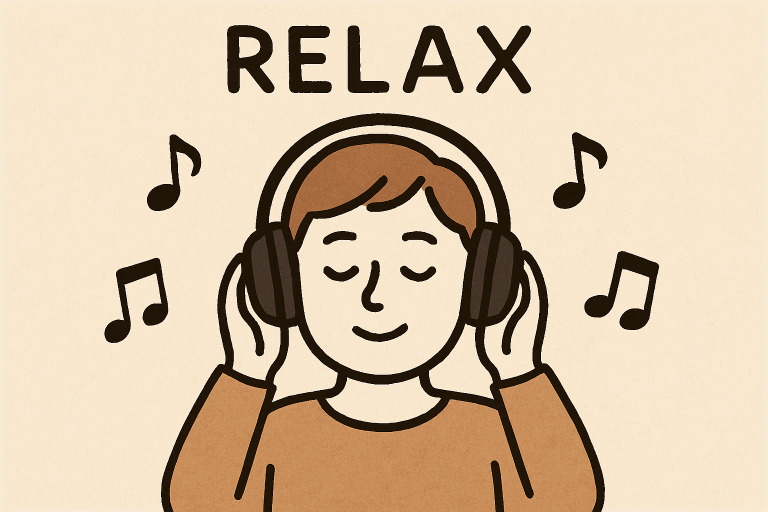How Music Can Transform Your Daily Life
Music is far more than a pleasant distraction—it’s an essential part of life that can profoundly shift your mood, fuel productivity, and strengthen connections with others. Immersing yourself in various musical experiences can open the door to deeper self-awareness and well-being. Countless stories, such as those shared by polyglots in their own words, underscore how engaging with music can help us navigate the complexities of daily living, manage stress, and connect across cultural divides.
Whether you’re listening on your morning commute, using a playlist to focus at work, or seeking comfort during challenging times, music’s transformative power is available to all. In fact, research and real-life accounts demonstrate that personalizing how you interact with music—by creating playlists or participating in communal activities—magnifies its positive impact on your mental and physical health. Integrating music into everyday routines is a simple, enjoyable way to spark lasting benefits, a theme you’ll find echoed by polyglots, musicians, and therapists alike.
Boosting Mood and Reducing Stress
Music’s influence extends deep into the brain, releasing ‘feel-good’ chemicals such as dopamine and oxytocin—neurochemicals responsible for making us feel happy, at ease, and inspired. Clinical studies highlight that even just a few minutes of listening to music can lower perceived levels of anxiety and help regulate emotions. Music therapy is now frequently utilized to alleviate symptoms of depression and stress-related disorders, as the simple act of listening can help calm the mind and create emotional space for healing. A Harvard Health article explains how music triggers physiological reactions that improve overall mood and reduce stress.
Enhancing Productivity and Focus
The right soundtrack can turn a mundane work session into a state of flow. Evidence shows that listening to preferred types of music(particularly those with limited lyrics or consistent rhythms) can sharpen concentration and enhance productivity. Many professionals use playlists curated with instrumental tracks to drown out background noise and stay on task. According to a Time article, the type of music selected is crucial: while upbeat songs boost motivation and repetition enhances focus, distractions caused by complex lyrics can reduce the benefits. Fine-tuning your music choices to fit specific tasks is a practical and effective strategy.
Fostering Social Connections
Music has long been at the heart of human gatherings, from ancient rituals to modern concerts. Group musical experiences—whether singing in a choir, dancing, or simply enjoying a live band—foster a sense of unity and shared purpose. Engaging in musical activities together is linked to heightened feelings of compassion, empathy, and collective joy. For example, communities often rally around musical performances during festivals or public events, reinforcing social bonds and breaking down barriers. These shared experiences can lead to lasting friendships and a deeper sense of belonging among participants.
Personalized Music for Emotional Regulation
Customizing music to suit your emotional state is a powerful self-care tool. By creating playlists for different moods—be it to boost energy, find calm, or work through grief—you can harness the evocative power of sound to support your emotional needs. The connection between music and emotion is rooted in how certain melodies and rhythms evoke memories, helping individuals navigate life’s ups and downs more smoothly. Using music intentionally for emotional regulation is supported by ongoing research and reported benefits among diverse populations, especially those seeking accessible methods for coping with everyday stressors.
Music as a Coping Strategy
During tough times, turning to music can offer invaluable comfort and control. Whether through active engagement like playing an instrument or passive listening, music provides a safe outlet to process emotions and foster resilience. Recent studies suggest that using music as a coping strategy can ease anxiety and depressive symptoms, improve overall life satisfaction, and even assist with grief management. Because music is universally accessible, it stands as a non-pharmacological approach that complements other well-being practices for those weathering emotional storms.

Music and Physical Health
The advantages of music also extend to physical health. Listening to music has been shown to lower blood pressure, reduce heart rate, and lessen levels of the stress hormone cortisol. In medical environments, patients exposed to music before and after surgery have reported not only lower pain and anxiety but also faster recoveries. Music’s rhythmic qualities produce a calming effect on the nervous system, making it an ideal addition to wellness routines. The benefits are widely considered in hospitals, elder care facilities, and rehabilitation centers worldwide.
Incorporating Music into Your Daily Routine
Music can have a transformative power that can be achieved through intention and creativity. To integrate music into daily life, start your day with energizing tunes, use lyric-free or ambient music during work, seek group musical experiences, design playlists for unwinding after work or falling asleep, and encourage family or friends to share favorite songs. By incorporating music into everyday moments, you can unlock lasting improvements in mental clarity, emotional health, and social relationships.
Visit the rest of the site for more interesting and useful articles.

